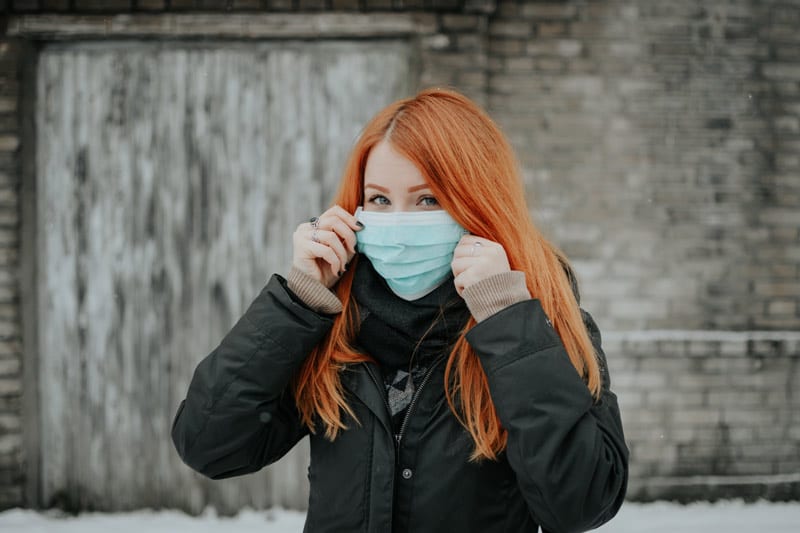Many people who desperately need residential treatment for an eating disorder like anorexia nervosa, bulimia nervosa, or binge-eating disorder (BED) still harbor fears about the COVID-19 pandemic and sharing space with strangers. They might even consider putting off or avoiding treatment as a result of those fears. The fact of the matter is, residential eating disorder treatment can still help, even during the COVID-19 pandemic – and an untreated eating disorder can be even more dangerous than the coronavirus.
Many dedicated residential programs have made modifications in their home-like environments, ensuring they better protect clients from exposure to COVID-19 while continuing the necessary treatment modalities. Protocols taken at these centers should include the latest CDC guidelines and take into consideration state regulations – or exceed them. The process is well-defined and designed with patient safety in mind.
Some Steps an Eating Disorder Center Should Take:
- The admissions team should ask possible clients questions about their exposure to COVID-19 (without judgment), including whether they come from or have visited a high-risk area, been exposed to anyone with confirmed or suspected COVID-19, or are showing any of the signs of the disease. Only clients who pass this screening should be allowed to continue residential treatment.
- When the patient makes it to the residential treatment center for the first time, the family should remain outside and say goodbye without entering, to reduce the number of visitors in the facility. At this point, there should be a further examination and questionnaire about exposure. If everything is still good to go, the patient can be admitted into the facility.
- Within the center itself, the staff should be up-to-date and trained on proper hygiene. This includes frequent hand washing, use of hand sanitizer, and mask-wearing to prevent the spread of germs.
- Isolation and mask protocols should spell out the specifics of use and must be obeyed. If individuals get a fever or other symptoms worrisome for infection, a common cold, the “regular” flu, respiratory infection, or possible COVID-19 infection, they are isolated, and proper medical treatment is provided.
Healthcare centers that treat long-term chronic illnesses and mental health disorders are always essential – and during this pandemic, when stress and uncertainty are higher than ever, that hasn’t changed. It is critical to note that for most clients, the risks of an untreated eating disorder will outweigh the risk of getting coronavirus in a controlled setting.
Keeping Your Recovery on Track Despite the Pandemic
Despite their physical consequences, eating disorders are at their core mental health disorders that can be triggered by stress and trauma. COVID-19 can trigger a worsening of mental health conditions and eating disorders. Factors such as social isolation, the added stress of homeschooling, economic concerns or the loss of a job, and a (reasonable) fear of the virus itself can weigh heavily on the mind and trigger disordered eating behaviors.
For people at risk of developing, or have already received a diagnosis of an eating disorder, the COVID crisis is doubly frightening. It can be easy to lose hope and backslide into harmful eating patterns, and the stressors are everywhere. It’s important to be aware of the risk factors of avoiding eating disorder treatment versus the risks of contracting the coronavirus. While the elderly or those with weakened immune systems may prefer outpatient treatment, in many cases, residential treatment is not only preferred but necessary.
Knowing the signs to watch for, the long-term risks of an untreated eating disorder, the benefits of inpatient residential treatment, and the measures in place to keep clients safe can help you get the help you need or facilitate treatment for someone you love. While many businesses, industries, and economies are shut down, treatment for eating disorders and coexisting conditions remains essential and safe, and now – whenever that is – is always the best time to take the first step toward healing and restoration. Eating disorder recovery is possible.
If you or someone you know experiences mental health issues, it is important to seek help from a qualified professional. Our Resource Specialist can help you find expert mental health resources to recover in your community. Contact us now for more information on this free service to our users.
ABOUT THE AUTHOR: CARRIE HUNNICUTT

Photo by Pille-Riin Priske on Unsplash
The opinions and views expressed in any guest blog post do not necessarily reflect those of www.rtor.org or its sponsor, Laurel House, Inc. The author and www.rtor.org have no affiliations with any products or services mentioned in the article or linked to therein. Guest Authors may have affiliations to products mentioned or linked to in their author bios only.
Recommended for You
- Why Eating Disorders in Men Are Often Missed - July 3, 2025
- No More Silence: The Opioid Epidemic’s Alarming Impact on Women - June 30, 2025
- The Hidden Impact of Repressed Memories on Mental Health and How to Heal - June 26, 2025





